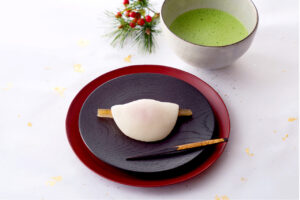
When it comes to evil charms on roofs in Kyoto, "Shoki-san" is well known. But there is another, sameA guardian deity to ward off evil called "Oni Ryu (dragon) Zi" with roots in China.was there.
I consulted dictionaries and literature,Oniryuko is a monster statue that is displayed as a decoration on the lower part of the roof, and is the guardian deity of the residents living under the roof.It is said to be the first of its kind in the world. The dragon, phoenix, qilin, lion, horse, rabbit, rooster, plover, and sea pig are placed. All of these are divine (spiritual) beasts. It is said that the origin of this custom is that the northern hunters in China used to throw their game and skins on the roof,Prayer for the repose of souls and protection from evilHe put the
Walking in Okazaki, Sakyo-ku at dusk after a typhoon, I came across these devil dragons. Near the Otorii gate of Heian Jingu Shrine, I crossed Keiryu Bridge from Jingu-do and walked along Niomon-dori to the southwest along the Sosui Canal. Immediately ahead on the left, on top of a buildingChinese-style octagonal hall painted in vermilionThe "O-torii" (the Grand Gate) is visible in the distance. It looks like a pair with the vermilion-lacquered Otorii (Grand Gate) of Heian Shrine, blending in with the scenery without any sense of incongruity. I had always thought it was an interesting building. There are several small objects on the corners of the octagonal roof. The entire roof was covered with netting, perhaps to prevent deterioration or as a safety measure in case of typhoons or earthquakes.
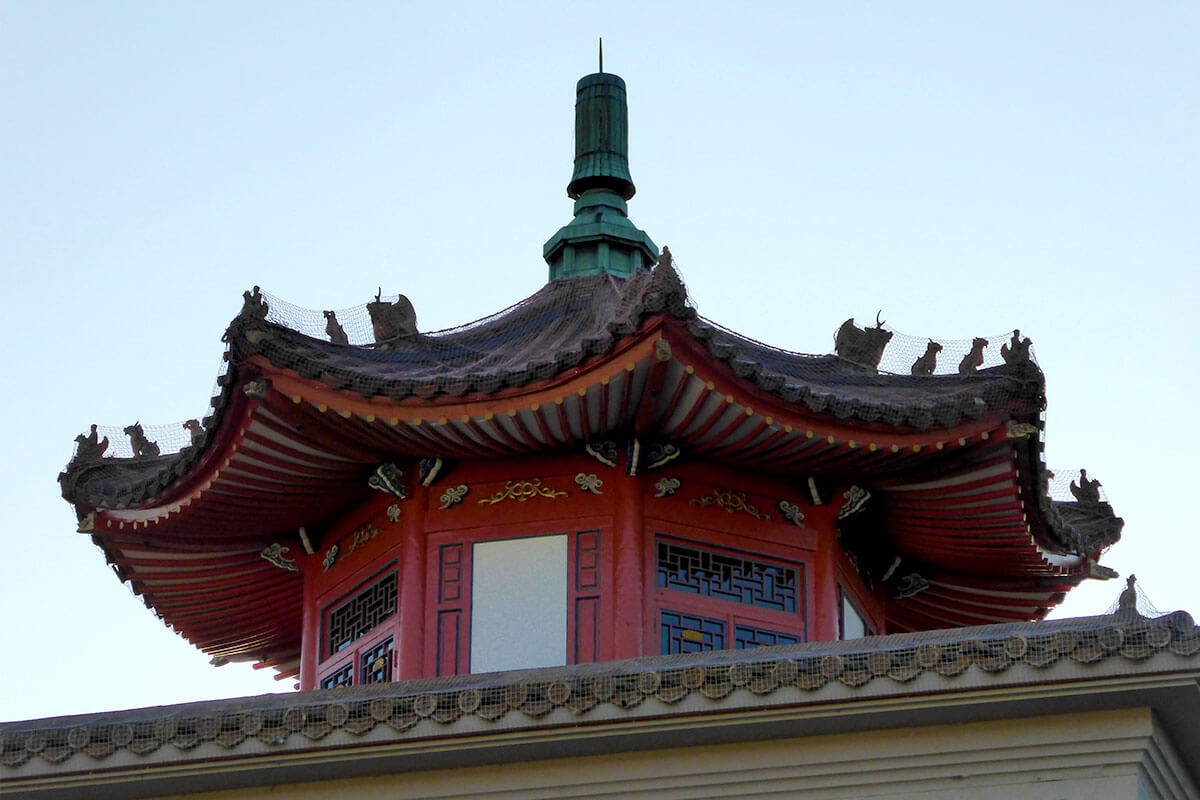
Demon dragons lining the roof of the octagonal hall to ward off evil
I remember that long ago, when I traveled to Beijing, China, I visited the National Palace Museum and saw a roof ornament similar to this one.On the corner wing of the roof of the NPM, a hermit was placed at the front, followed by a line of dragons, phoenixes, qilin, and other divine beasts. These statues were demon dragons.The number of the buildings in a row is determined as an odd number, and the more the number increases, such as 3, 5, 7, and 9, the more prestigious the building will be. In China, odd numbers are auspicious numbers, and there are nine sacred beasts on the roof of the National Palace Museum. Incidentally, the number "9" is said to be an auspicious number with the meaning of infinity and eternity.
To begin with,Decorations on roofs are common throughout the world.First.Authority and powerIt was attached to the roofs of temples and the dwellings of those in power to indicate the It was laterTo ward off fire and evil spiritsThe role of the "dragon" is now taken on by the "dragon". Among the various divine beasts in the Oni Ryuko, the dragon is said to have the highest rank among them. Since the dragon is the god of water, it is also believed to ward off fire, and in the days when there were no lightning rods, it was believed to protect against lightning, which was the most fearsome of all.
I was told that there are a total of forty-seven demon dragons lining each corner of the octagonal hall roof that I encountered this time. These demonic dragons must be protecting the building from fire and evil spirits on a daily basis. I will visit other Oniryuko in Kyoto again.
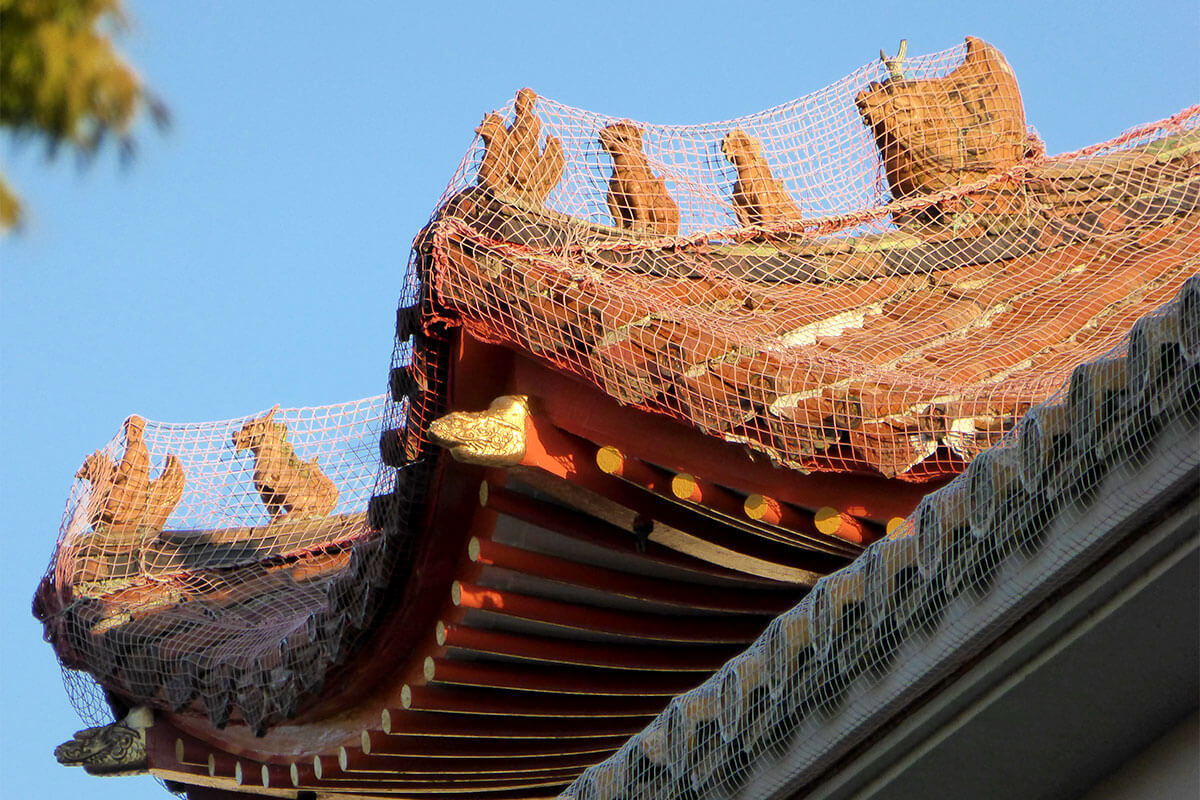
The first one is a figure on a bird, then the roof in the back is a dragon, and the one in the front is a lion?
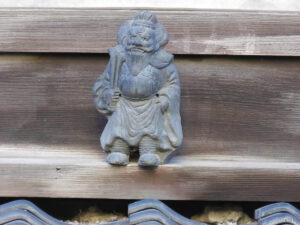
Good luck charms to ward off evil spirits found on the streets of Kyoto
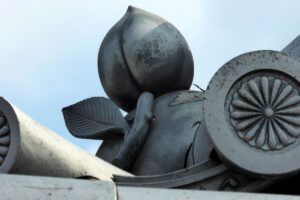
Objects found in the corner of the roofs of temples and shrines that dispel demons.
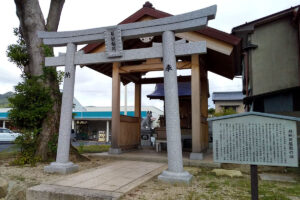
The Miyazu version originated from Miyazu, Japan!
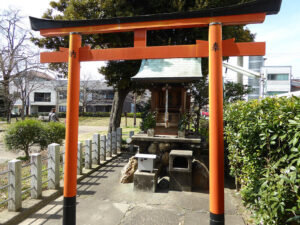
During the Heian period, the capital of Kyoto was the home of foxes, raccoon dogs, and ghosts!
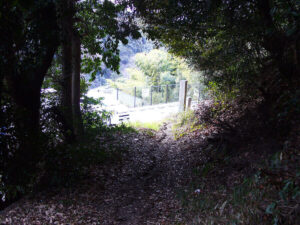
Telling episodes of tragic love to the present
Tradition that exists everywhere in the city of Kyoto. It is not just a picture, it is secretly alive in this modern age and continues to coexist with people. The two of Office TO, who previously wrote a series of articles "Kyoto's Demon World Exploration" in the monthly magazine Leaf, explore the mysterious "different" world of Kyoto, which was created over 1200 years. I will unravel the story while actually visiting the place. .
 News
News Feature article
Feature article Featured event
Featured event